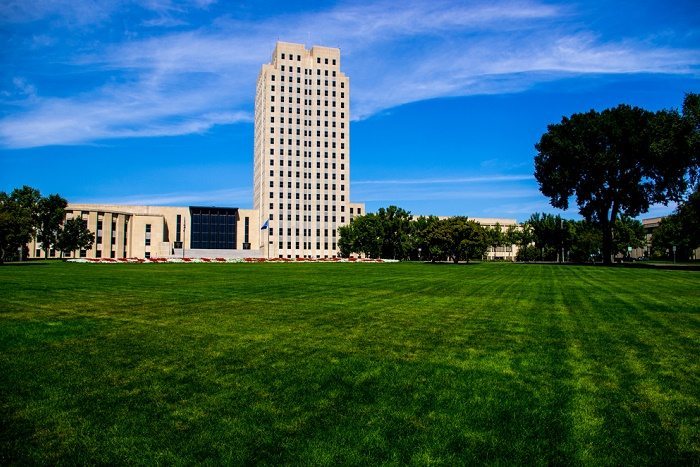North Dakota Set To Be First State to Pass Radical ‘Personhood’ Amendment
Anti-choice ballot initiatives in Colorado and Tennessee have gained national headlines, but a ballot initiative in North Dakota that would have significant consequences for women’s reproductive rights has gotten far less attention.

Anti-choice ballot initiatives in Colorado and Tennessee have gained national headlines, but a ballot initiative in North Dakota that would have significant consequences for women’s reproductive rights has gotten far less attention.
Measure 1, if approved by voters, would amend the state constitution to read that the “inalienable right to life of every human being at any stage of development must be recognized and protected.” North Dakota would join Missouri as the only states with constitutions that define life as beginning at conception—North Dakota would be the first to do so through a constitutional amendment approved by the voters.
Measure 1, known as the “Life Begins at Conception” Amendment, would give constitutional rights to fertilized eggs, embryos, and fetuses, and would ban abortion, birth control pills, intrauterine devices (IUDs), and emergency contraception.
It could also eliminate certain medical procedures such as cancer treatments and in vitro fertilization. Women who miscarry may be subject to police investigations to determine if their actions were the cause.
The latest polling shows that 49.9 percent of those surveyed would vote to approve the ballot measure. The poll was conducted by the University of North Dakota (UND) College of Business and Public Administration, and surveyed 505 likely voters in the state. The pool has a margin of error of plus or minus 5 percent.
Robert Wood, a professor of political science at UND who helped conduct the poll, told the Forum News Service that for the measure to be defeated, all of the 17 percent of undecided voters would have to break against the measure. “By and large, there are not that many undecideds on this particular measure,” he said.
Similar so-called personhood amendments have been on the ballot three times in other states: voters rejected the amendments in Mississippi in 2011 and in Colorado in 2008 and 2010.
Recent polling shows that this year’s Colorado personhood ballot initiative shows that the measure isn’t likely to pass, with only 37 percent of survey respondents in support of the amendment.
The ballot measure is a legislatively referred constitutional amendment, which means that state lawmakers voted to place the amendment on the ballot. The state legislature passed SCR 4009 in March 2013. It was passed narrowly in the senate by a 26-21 vote, and then overwhelmingly in the house by a 57-35 vote.
Proponents of the measure made no secret of its true intent. “This amendment is intended to present a direct challenge to Roe v. Wade,” state Sen. Margaret Sitte (R-Bismarck) said during the senate floor debate.
Abortion is already highly regulated in the state, and access is extremely limited. Fargo’s Red River Women’s Clinic is the only clinic that provides abortion care in the state, and it subject to significant regulation.
The state legislature passed multiple laws restricting abortion access during the 2013 legislative session. State lawmakers passed SB 2368, the Pain-Capable Unborn Child Protection Act, and HB 1456, the Human Heartbeat Protection Act; both have been blocked by the courts and are being litigated.
Supporters of the measure have raised more than $577,000 in campaign contributions, including $186,000 in contributions from the North Dakota Catholic Conference. Opponents have raised more than $815,000 in campaign contributions, the vast majority coming from the Planned Parenthood Action Fund in North Dakota, South Dakota and Minnesota.
